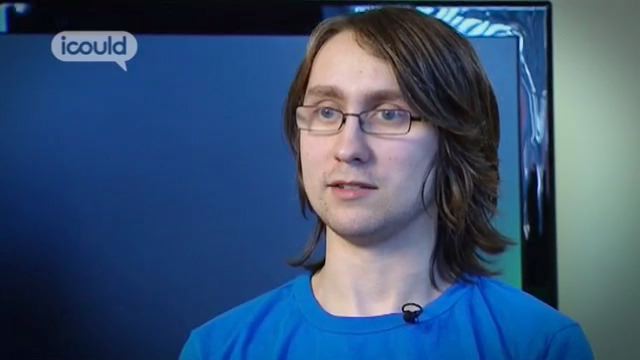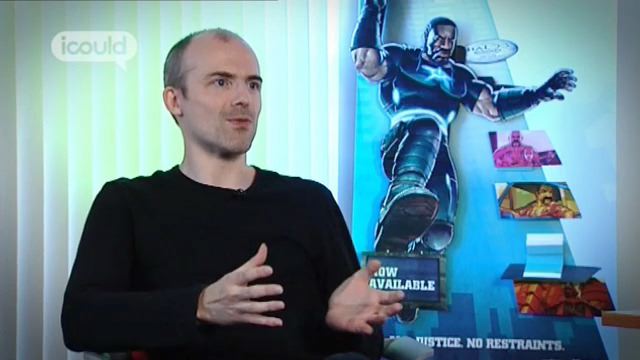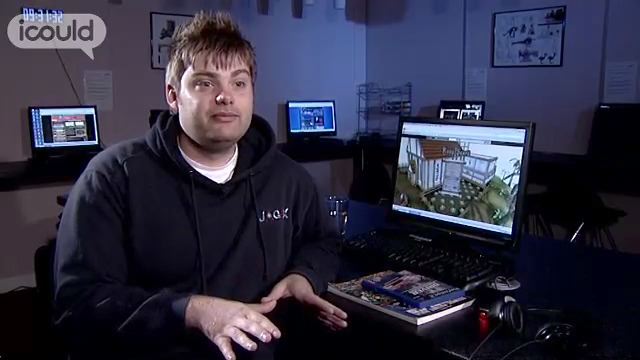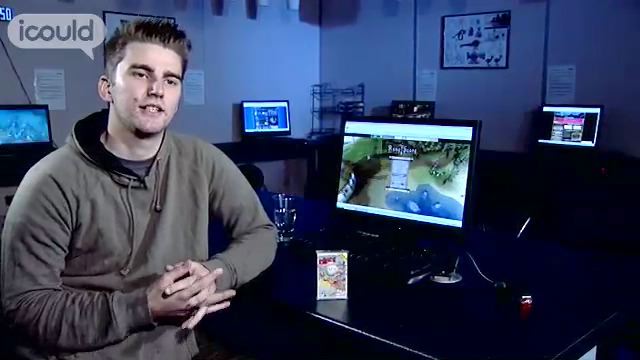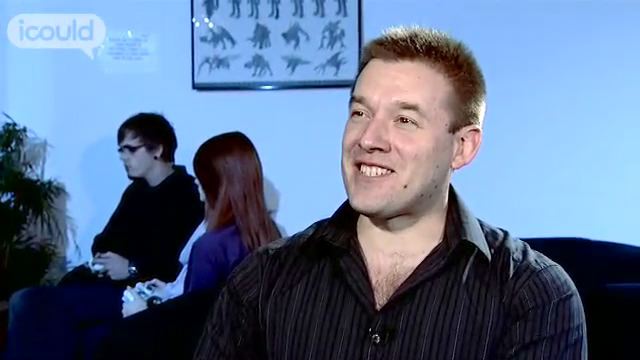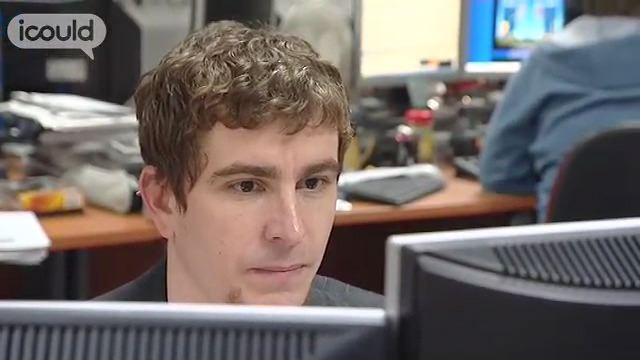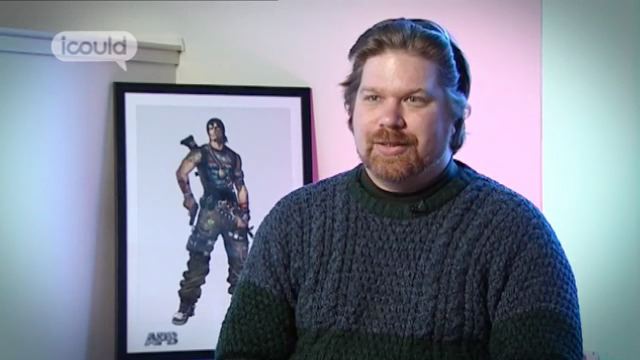Creative Design Lead
Realtime Worlds
Stephen H
00:00:02 My name’s Stephen H and I’m a, the lead creative designer, one of the games that Realtime Worlds are working on.
00:00:09 I’m in charge of the creative aspects of the game, one part of it is to do with the social interaction, the other part of my role is to do with the sort of written content, material in the game.
00:00:20 I’ve worked on quite a lot of different areas, not just games, I’ve worked in other types of media. So that’s multimedia, I’ve also done other things like drawing comics, done a lot of art based stuff, also done quite a bit of writing, so this really kind of like a grab bag of different areas I’ve worked in that’s kind of led to where I am now.
00:00:40 I mean I didn’t have a particularly good time at school I was quite, I was quite bullied I suppose at school. So I didn’t have a lot of self confidence, and so it, I wasn’t particularly outgoing the people I was surrounded with were kind of naturally, you know a little bit aggressive and also I was quite quiet so I was, you know and I was quite, I suppose quite intelligent so, it was, it was that sort of thing where you, if, if you stand out a little, a little bit, and I suppose just socially I wasn’t very well adjusted at the time.
00:01:08 I actually pretty much dealt with it myself although that was really down to me, because I didn’t really, I didn’t really let on to anybody, the things, that’s one of the things I learned about it was you really need to sit there and talk, you know speak up and spread you know sort of talk to as many people as possible about it.
00:01:24 I had remedial English, which is an interesting thing so, literally I mean I, I could hardly communicate in a written form with other people, so I had special schooling to, to help me to write.
00:01:35 And now ironically my job is all about writing. So, that was something I was quite pleased about, that I’d actually managed to move, you know move myself from being incapable of communicating in that forum to something where I could actually you know communicate well and actually get a job in it.
00:01:52 When I was at school I wasn’t very sure exactly what it was I wanted to do, and so I took quite a while to work out what my career path was, I was never somebody that had a very definite idea of what I wanted to do. But I was interested in lots and lots of different things.
00:02:06 I was quite interested in diving, and biology actually so, the closest I came was wanting to be a marine biologist, and then when it came into, it came to filling my forms to go to university, just at the closing stages of school I, actually filled in computer science instead, it really was a kind of an impulsive you know looked at the form, had it for a couple of weeks and then went, I’ll do computers.
00:02:31 When I did that degree I kind of found out that I wasn’t, wasn’t really into very hardcore computing, but I did like aspects of doing that, when I was at school I was very into art and so what I wanted to do was find something that combined computers and art.
00:02:46 After I came out of university multimedia was kind of a new buzz word, when I heard what multimedia was I thought, that sounds perfect, it’s the type of thing I’m interested in, it does both computers and art.
00:02:55 There are certain jobs where having a, a breadth of experience rather than necessarily a depth in a particular area is actually an advantage. So being a games designer knowing a lot about a lot of different subjects, not necessarily to a great depth, although that is important you can’t beat just you know you can’t be paper thin, it has to be, you have to have a certain amount of knowledge. Then that’s very, very useful.
00:03:18 Part of my development, my career has been at various stages I’ve actually tried to change direction. So initially for instance I’d studied computer science and artificial intelligence that’s very hardcore programming, but then I wanted to try and get into more of the art side of multimedia so I volunteered working with other companies which is not necessarily something I’d fully recommend so, you know literally working for no pay, for a while but the reason I did it was to gain the right experience to allow me to move into the areas that I wanted to move into.
00:03:48 There was a bit of natural pressure not to follow the art side of things but to follow the, the maths and the science side of things because people can understand those types, you know that is more likely to lead to, to a job.
00:04:00 I would say that ironically, what I’ve found is that, I’ve actually had a lot of employment doing artistic things, so what I would say with something like that is, that it’s really important to, follow what you have a passion for, because these days you can really make a job out of just about anything.
00:04:18 END
Stephen H is Lead Game Designer at Realtime Worlds. He says “it’s really important to, follow what you have a passion for, because these days you can really make a job out of just about anything.” He also thinks that for his job “having a breadth of experience rather than necessarily a depth in a particular area is actually an advantage.”
More information about IT quality and testing professionals
The UK average salary is £29,813
There are 37.5 hours in the average working week
The UK workforce is 47% female and 53% male
Future employment
- Undertakes the testing of software, systems or computer games for errors, identifies source of problems and proposes solutions
- Develops, implements and documents test plans for IT software, systems and computer games
- Develops quality standards and validation techniques
- Makes recommendations concerning software/system quality
